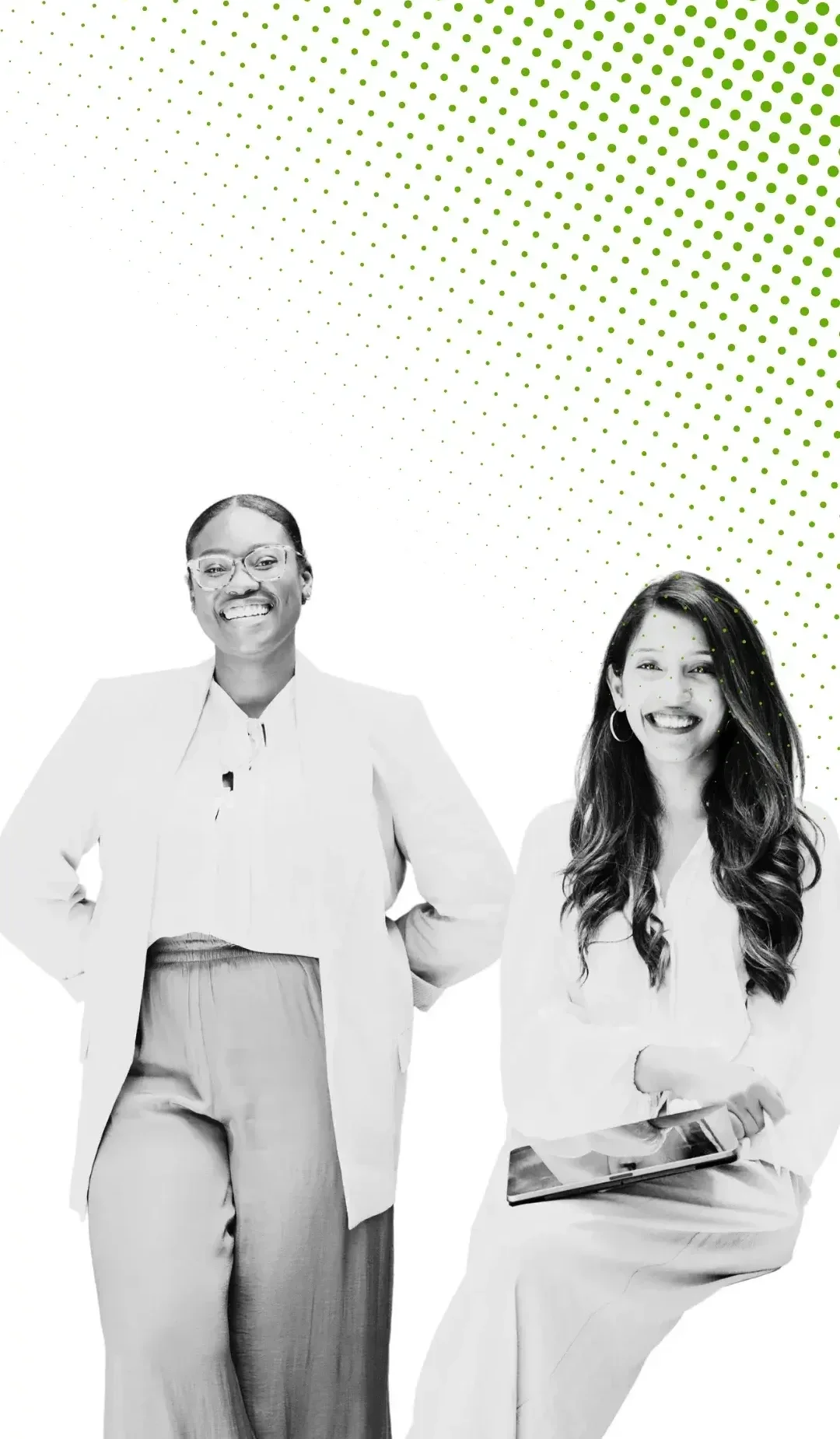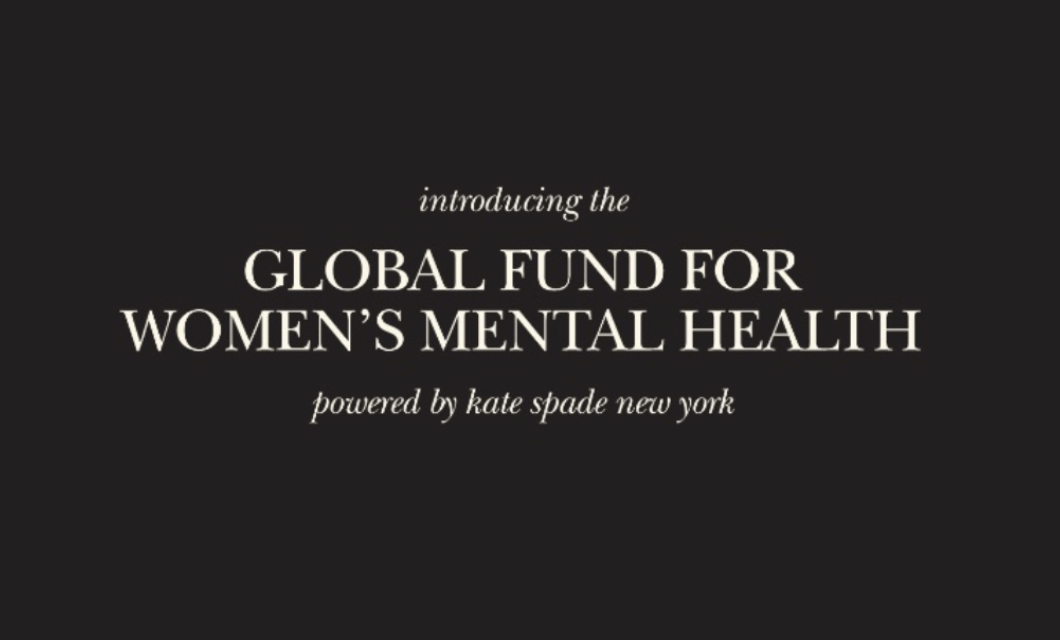If you or a friend need urgent assistance, call 911 immediately, or take your friend directly to the emergency room. If you feel it’s safe, stay with your friend, or find someone to stay with them until help arrives.
GUIDE TO WOMEN’S WELLBEING AT WORK
Understanding Workplace Mental Health Today for Women & How to Provide Support
Mental health impacts us in all contexts, especially in the workplace, where many adults spend the majority of their time. The workplace itself also impacts mental health in various ways; it can be a source of stress — or connection, wellbeing, and thriving. This guide looks specifically at women’s mental health in the workplace. We will cover the ways in which internal forces, social forces, and systemic forces impact women’s mental health at work, as well as strengths of women in the workplace, ways of offering support, and resources for further learning. Whether you identify as a woman yourself or are looking to support one in your life, you’ve come to the right place.
*A note on terminology: In this guide, we refer to “woman” as anyone who self-identifies as a woman, keeping in mind there are countless ways to exist as a woman. As such, we pull from research on the factors that, overall, tend to impact women in the workplace.
Created in partnership with the Global Fund for Women’s Mental Health powered by kate spade new york
Internal Forces that Impact Women’s Mental Health in the Workplace


While there are infinite forces that affect the mental health of women in the workplace, here are some of the more common ones that are specific to this group. These have the potential to either boost or strain current mental health:
– Your past and current mental health experiences
– How you see yourself — including your self-esteem, confidence, and sense of worth
– How much mental health stigma you’ve internalized
– How much you’ve internalized gender stereotypes
– Other forms of internalized discrimination (like racism, classism, or ageism)
– How mentally and emotionally depleted you feel — both at work and in your personal life
– How satisfied you are with your work tasks, environment, and colleagues
For more information on how these internal forces show up for women, see our Roadmap to Women’s Mental Health.


Work is often a social environment, and with that comes nuance around relationships with coworkers, managers, and the image we portray in professional settings. Psychological safety and support can impact stress, fulfillment, and wellbeing — and it’s shaped by a number of factors:
– How much support you get, both at work and outside of work
– Level of connection or isolation at work
– Role strain – how many roles you’re juggling in life (like caregiver, parent, partner) in addition to being an employee
– Responsibility overload (feeling overwhelmed by your amount of responsibilities at work)
– Level of gendered expectations and/or microaggressions you might experience or witness (e.g., expectations of passivity, not being believed or taken seriously) at work
– Whether you have supportive, affirming female mentors in your professional life
Systemic Forces that Impact Women’s Mental Health in the Workplace


In order to really understand women’s mental health in the workplace, we need to situate it within a societal context, especially because systemic forces can lead to social and internal hurdles to mental health (e.g., working in a predominantly male space can increase your level of self-doubt at work). These are some of the barriers to mental wellbeing that women at work face on the systemic level:
– Working in a space with notable differences in power & privilege (e.g., predominantly male spaces, white majority spaces for women of color, heteronormative spaces for queer women)
– Navigating norms and definitions of leadership, success, and workplace culture that do not align with your own
– Lack of access to affordable, reliable childcare
– Challenges with returning to work after leave (e.g., for familial or health reasons)
– Lack of accommodations for neurodivergence and/or disability
– Silence and stigma around mental health at work
Mental Health Strengths of Women in the Workplace


Women offer unique and valuable perspectives to the workplace. In order to support women at work, we all need to appreciate and celebrate their strengths and talents. Below are just a few.
*It’s important to note that while research highlights these, women possess countless strengths, and each woman deserves to be appreciated for her unique abilities.
Creativity & Flexibility
– Ability to multitask and adapt to changes
– Openness to learning and new ideas
Communication & Conflict Resolution
– Effective listening and emotional intelligence
– Being able to empathize and imagine others’ perspectives
Fostering Collaboration
– Mutual support for others
– Awareness of diversity and justice issues
Leadership & Mentorship
– Work-life balance
– Focus on meaning and fulfillment
how to support Women in the Workplace
Whether a woman is entering, continuing, pausing, or exiting their time in the workforce, they deserve support — because we all thrive in connection with others.
On an individual level
Listen – Listening with care and intention is an important skill for understanding your peers and building meaningful support in the workplace.
Model self-care – Practicing self-care is a good individual practice to minimize the effects of burnout.
Gather resources – Collecting tips or resources for women in the workplace can be beneficial that may help you across your career.
Set boundaries – Creating workplace boundaries that support your mental health.
On an interpersonal level
Become a mentor – Offering mentorship and sharing resources with colleagues when it feels appropriate can foster trust and collaboration.
Encourage self-care – Helping your colleagues take breaks when possible may reduce burnout, increase productivity, and boost
Support change – Standing up when dynamics and policies are problematic has the power to drive meaningful progress and fairness.
Celebrate one another – Highlighting others achievements and supporting their goals can boost confidence and build mutual respect.
On a systemic level
Get involved – Advocating for fairness, justice, and inclusion is essential to inclusive and empowering workplace environments.
Be adaptable & flexible – Creating an environment that celebrates all the different parts of her, openness and creativity lead to more supportive & closer-knit teams.
Talk about it – Having open conversations about mental health gives space to highlight how being a woman in the workplace has unique challenges and strengths.
Invest in change – Donating and volunteering in programs that provide benefits to women and promote equitable policies can expand access to resources needed for systemic change.
Mental Health Resources

Further reading, information, and tools from credible sources, particularly from MHC coalition members
ADAA: The Anxiety and Depression Association of America provides resources, support, and guidance for women dealing with anxiety, depression, and related mental health challenges.
Charlie Health: Charlie Health is a mental healthcare provider offering virtual Intensive Outpatient Programs for adolescents and adults looking for mental health support.
Crisis Text Line: Crisis Text Line is a free, 24/7, confidential support at your fingertips. Text 741741 to be connected to a live, trained Crisis Counselor.
Boris Lawrence Foundation: The Boris Lawrence Henson Foundation is a nonprofit organization combating mental health stigma in the African American community by providing resources and support.
Full Stop Australia: Full Stop Australia is an organization providing 24/7 trauma-specialist counseling, advocacy, and education to support individuals affected by sexual, domestic, and family violence.
Self Injury Recovery and Awareness – SIRA is a nonprofit organization dedicated to helping individuals recover from self-injury through support groups, education, and resources.
Silence the Shame: Silence the Shame’s mission is to empower and educate communities on mental health and wellness.
The National Alliance for Eating Disorders: The National Alliance for Eating Disorders is the leading national nonprofit organization providing referrals, education, and support for all individuals experiencing eating disorders and their loved ones.
RAINN: RAINN is committed to supporting survivors of sexual violence, cultivating communities of anti-sexual violence activism, and promoting policies that deliver justice and hold perpetrators accountable. The RAINN hotline is a free, confidential, 24/7 service for anyone affected by sexual assault, abuse, or harassment. You can reach it by calling 800-656-HOPE (4673).
Workplace Mental Health Programs

Explore additional resources on our Wellbeing at Work page. Encourage your company to take the pledge to help create a healthier, more inclusive world for everyone.
NAMI: NAMI’s StigmaFree Company initiative provides companies with the tools and resources to support their employees’ mental well-being through expanding awareness, fostering a culture of caring, and improving access to support
APAF: The Center for Workplace Mental Health at the APAF offers free tools and resources for employers who are interested in building and sustaining a mentally healthy workplace.
One Mind: One Mind at Work is a non-profit organization improving workplace mental health by partnering with those embarking on the initial stages as well as those who have developed more comprehensive mental health programs.
Mental Health America: The first national workplace mental health certification to assess and award employers committed to creating mentally healthy workplaces. Since 2019, Bell Seal recipients at all recognition levels have implemented new policies, procedures, and programs, informed by worker feedback and the certification standards, to support their workers’ mental health.
Mindshare Partners: Mind Share Partners is a national nonprofit on a mission to reshape workplace culture around mental health through a dual approach of movement building and training & advising.
National Council for Mental Wellbeing: National Council for Mental Wellbeing offers Mental Health First Aid at Work training, available in person or virtually, and can be tailored to reflect your organizational culture.
Shatterproof Just Five: Just Five is an online, self-paced, mobile enabled program focusing on increasing awareness, reducing stigma, and sharing information about addiction prevention and treatment. The program is available directly through employers.
Steve Fund: The Steve Fund has a portfolio of timely and relevant educational programs to make a positive impact on the lives of young people of color.
Silence the Shame: Silence the Shame Corporate Partnership offers innovative wellness programs to support a healthy work environment, by increasing employee productivity and reducing turnover or absences.
Nascent Consulting: Nascent Consulting is a psychology and social justice-focused consultancy that cultivates organizational wellness from the inside out.
NAMI-NYC: The NAMI-NYC Workplace Mental Health Collaborative is a year-long program employers can join that connects and supports like-minded employers committed to promoting employee wellbeing.
Rising Tide Capital: Rising Tide Capital is a non-profit organization whose mission is to help individuals start and grow successful businesses through entrepreneurship and community building.
RISE: RISE supports collaborative industry action to build greater equality and resilient futures at scale in global garment, footwear and home textiles supply chains.
Resources for Working Moms & Their Children

Moms First: Moms First fights for the structural changes moms need and deserve — paid leave and affordable & accessible child care.
Grace Institute: Grace Institute serves unemployed and underemployed women in NYC through training and job placements, with a special focus on women of color and single parents.
Maternal Mental Health Alliance: MMHA is a charity dedicated to ensuring all women and families impacted by perinatal mental health have access to high-quality, compassionate care and support.
The Jed Foundation: The Jed Foundation is a non-profit organization that protects emotional health and prevents suicide for our nation’s teens and young adults.
The Steve Fund: The Steve Fund is an organization promoting the mental health and emotional wellbeing of young people of color.
Therapy for Black Girls: Therapy for Black Girls is an online resource dedicated to providing mental health resources for Black girls and women.
Bring Change to Mind: Bring Change to Mind is an organization aimed at ending the stigma and discrimination around mental illness.
The Trevor Project: The Trevor Project is the world’s largest suicide prevention and crisis intervention organization for LGBTQ young people.
Our Minds Matter: Our Minds Matter is a teen-led movement to change the culture around mental health. Our Minds Matter’s vision is a world where no teen dies by suicide.
Active Minds: Active Minds is the nation’s leading nonprofit organization supporting mental health awareness and education for young adults.
Black Girls Smile: Black Girls Smile is a national nonprofit that empowers the mental health and well-being of young Black women and girls through educational programs, workshops, and a therapy assistance scholarship program led by Black women.
Girls Inc: Girls Inc is a national nonprofit that empowers girls to become “strong, smart, and bold” through evidence-based programs in areas like STEM, leadership, health, and financial literacy
Kids Mental Health Foundation: “Bloom: Growing Kids’ Mental Well-being” is an online curriculum designed to help parents confidently support their kids’ mental health. Short courses and clear resources focus on the topics parents are asking for.
Girls Who Code: Girls Who Code is an international nonprofit organization that aims to support and increase the number of women in computer science.
Step Up: Step Up is a mentorship nonprofit providing the structure for girls (and those who identify with girlhood) to define their ideal destination and get there — wherever that destination may be.
Gurls Talk: Gurls Talk is a non-profit organization dedicated to advocacy and supporting the wellbeing of adolescent girls and young women through programs, content, and events.
Girls Write Now: Girls Write Now is a diverse, multi-generational, passionate community of writers, creatives, leaders, artists, and activists, offering wellness- and activist-minded curricula, mentorship, friendship, and professional development support.
Child Mind Institute: Child Mind Institute is an independent, national non-profit dedicated to transforming the lives of children and families struggling with mental health and learning disorders.
Didi Hirsch Mental Health Services & Teen Line: Didi Hirsch Mental Health Services is transforming lives by providing quality mental health, substance use and suicide prevention services. Teen Line’s highly trained teen listeners provide support, resources and hope to any teen who is struggling. CALL 800-852-8336 Nationwide (6 PM – 10 PM PST) / TEXT TEEN to 839863.
RES~URCES
Check out the Mental Health Coalition’s Resource Library for additional information on boosting mental well-being.
If you or someone you know is experiencing a mental health crisis, use the resources below:
988
The 988 Suicide & Crisis Lifeline provides 24/7, free and confidential support for people in distress, prevention and crisis resources for you or your loved ones.
Crisis Text Line
Text COALITION to 741741 from anywhere in the United States, anytime. A live, trained Crisis Counselor receives the text and responds, helping you move from a hot moment to a cool moment.
National Sexual Assault Hotline
RAINN (Rape, Abuse & Incest National Network) is the nation’s largest anti-sexual violence organization. Call their National Sexual Assault Hotline at 800-656-4673.


Credit: This Guide was created by Khyia Ward, M.Ed., LAC; Anna Marie Fennell, M.Ed., LMHC; and Naomi Torres-Mackie, Ph.D. for The Mental Health Coalition.
Special thanks to the Global Fund for Women’s Mental Health powered by kate spade new york for funding this important work.
Social Forces that Impact Women’s Mental Health in the Workplace